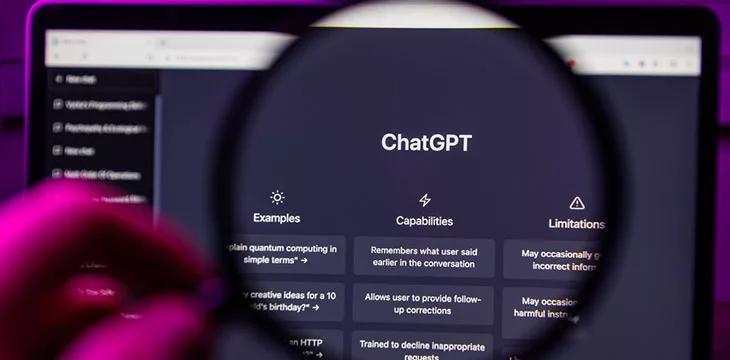
|
Getting your Trinity Audio player ready... |
Germany becomes the latest European country to launch a probe into the popular artificial intelligence (AI) chatbot service ChatGPT. Local regulators are investigating whether the chatbot adheres to the European General Data Protection Regulation (GDPR).
Regional regulators have prepared a questionnaire for OpenAI, the California-based company behind ChatGPT. They expect the company to respond by June 11, according to Marit Hansen, the State Data Protection Commissioner for the German state of Schleswig-Holstein.
“We are asking OpenAI for information on issues that stem from the European General Data Protection Regulation (GDPR),” Hansen told Agence France-Presse.
“We want to know if a data protection impact assessment has been carried out and if the data protection risks are under control.”
The EU’s GDPR framework aims to protect users’ data and grants them the right to access, correct, and delete any data collected from them. OpenAI has done a poor job of informing its users about these provisions, Hansen added.
“As soon as personal data of European citizens is processed, European data protection law must be respected,” Hansen told the French news outlet.
German regulators are also concerned about how ChatGPT is accessing and processing data relating to minors. With its service not age-restricted, the chatbot exposes minors to adult language and images, a vulnerability that Germany and other countries are taking aim at.
Europe has been a tough market to conquer for ChatGPT. Earlier this month, Italy became the first Western country to ban the chatbot. The country cited the mass collection and storage of user data to train ChatGPT’s algorithms as its biggest concern.
Just like in Germany, Italian regulators also criticized how the chatbot serves minors. It “exposes minors to absolutely unsuitable answers compared to their degree of development and awareness,” the Italian data protection watchdog Garante said.
Globally, there have been increasing calls to regulate AI. European lawmakers have called on U.S. President Joe Biden and the European Commission to partner on regulations, with other countries like China plotting national AI policies.
In order for artificial intelligence (AI) to work right within the law and thrive in the face of growing challenges, it needs to integrate an enterprise blockchain system that ensures data input quality and ownership—allowing it to keep data safe while also guaranteeing the immutability of data. Check out CoinGeek’s coverage on this emerging tech to learn more why Enterprise blockchain will be the backbone of AI.
Watch: CoinGeek Roundtable with Joshua Henslee: AI, ChatGPT, and Blockchain
Recommended for you
Lorem ipsum odor amet, consectetuer adipiscing elit. Elit torquent maximus natoque viverra cursus maximus felis. Auctor commodo aliquet himenaeos fermentum
Lorem ipsum odor amet, consectetuer adipiscing elit. Accumsan mi at at semper libero pretium justo. Dictum parturient conubia turpis interdum

 11-22-2024
11-22-2024


